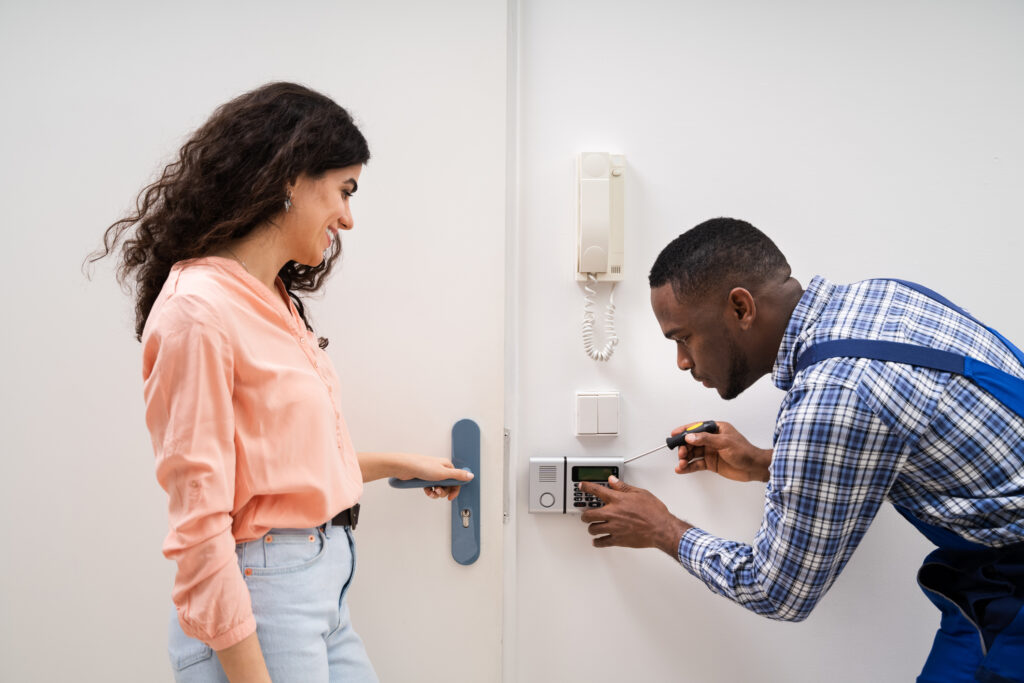Common Myths About 24-Hour Locksmith Services
Emergency locksmithing is one of those services people only think about when they absolutely need it. Because of that, rumors and half-truths spread quickly—about pricing, methods, response times, and even legality. This guide clears up the most common myths about 24-hour locksmith services so you know what to expect, what to ask, and how to get reliable help at any hour.
Why Myths About 24/7 Locksmiths Stick Around
Most people call a locksmith under stress: late at night, in bad weather, or after a hectic day. In the rush to solve the problem, older stories and assumptions feel convincing—especially if a friend once had a poor experience or a viral post painted every provider with the same brush. In reality, modern emergency locksmithing is a disciplined trade with clear authorization checks, documented procedures, and a strong preference for non-destructive entry. The best teams use transparent pricing, provide ID on arrival, and walk you through options before they touch the door, vehicle, or storefront.
Clearing up myths helps you act faster and smarter during a lockout. You’ll know which questions matter, what signals a reputable pro, and how to balance speed, cost, and long-term security. Below, we tackle the most persistent misconceptions we hear on calls—plus the facts that replace them.
Top Myths About 24-Hour Locksmith Services
Each card highlights a common misconception and the reality based on day-to-day field work.
Myth 1: “24/7 means instant arrival.”
A true 24-hour service means trained technicians are available around the clock—not that one is always on your block. Traffic, weather, and other emergencies affect ETAs. Reputable teams give realistic windows and updates, then prioritize high-risk situations.
Myth 2: “They always drill the lock.”
Drilling is a last resort. The default is non-destructive entry using picks, decoding tools, shims, and bypass methods that preserve your hardware. Drilling is used when a lock is damaged, incorrectly installed, or high-security features make other methods impractical under emergency timelines.
Myth 3: “Any locksmith can open every lock.”
Skill sets vary. Automotive, residential, commercial, and access-control systems require different tools and training. A professional will disclose capabilities, explain options, and refer or schedule a specialist if your hardware falls outside their scope.
Myth 4: “It’s cheaper after midnight.”
After-hours work often includes a surcharge that covers staffing, safety, and logistics. Ethical companies tell you the callout fee, labor rate, and potential add-ons before dispatch so you can make an informed decision.
Myth 5: “ID checks are optional.”
Authorization isn’t a courtesy—it’s essential. Expect ID verification and proof of occupancy or ownership. For businesses, managers may need to authorize entry. These safeguards protect you, your neighbors, and the technician.
Myth 6: “Car entry always sets off alarms or damages airbags.”
Proper tools and techniques avoid sensor and airbag interference. Modern auto entry focuses on trim protection, weather seals, and electronics. A trained tech minimizes risk and explains what they’re doing as they work.
Myth 7: “Quotes by phone are scams.”
A ballpark quote is normal; exact pricing depends on lock type, condition, and method required. Beware of unusually low “$29” ads that balloon on site. Choose companies that outline fees, arrival estimates, and approval steps upfront.
Myth 8: “Smart locks make locksmiths obsolete.”
Smart locks fail too—dead batteries, jammed mechanisms, or misconfigured access. Locksmiths provide temporary power, mechanical overrides, rekeying, and guidance on secure code policies to prevent repeat lockouts.
Myth 9: “Rekeying is the same as replacing.”
Rekeying changes the internal pins so old keys stop working, retaining the existing lock body. It’s fast, cost-effective, and ideal after lost keys or tenant turnover. Replacing is for worn, low-quality, or compromised hardware.
Myth 10: “Any drill hole ruins the door.”
When drilling is necessary, a pro targets the cylinder precisely, protects finishes, and replaces the core afterward. Doors and frames remain intact; the replacement often improves security compared to the damaged original.
Myth 11: “Locksmiths keep your key.”
Ethical locksmiths do not keep copies. If keys are cut or cylinders rekeyed, duplicates are provided to authorized parties only. Ask about documentation and counts; keep your invoice for records.
Myth 12: “You can’t get help without the original car key.”
Many vehicles allow key origination and programming from code or lock decoding. You’ll need proof of ownership, and the tech will outline cost, time, and availability by make and model.
What Happens When Myths Guide Your Decisions
Misconceptions can cost time, money, and security. Here’s how to avoid the common pitfalls.
Waiting for “instant” service
Assuming immediate arrival can keep you in unsafe spots. Ask for an ETA, request updates, and move to a well-lit, secure location while you wait.
Chasing ultra-low teaser ads
Too-good-to-be-true pricing often means upsells later. Choose providers with written or clearly stated ranges and transparent after-hours policies.
Declining ID checks
Skipping authorization invites fraud and liability. Have your ID and proof of address or ownership ready to speed the process.
Insisting on the “quickest” destructive method
Non-destructive entry protects hardware and saves money. Let the tech attempt professional bypasses before resorting to drilling.
How to Vet a 24-Hour Locksmith Service
Use these signals to separate professionals from pretenders—day or night.
Clear Pricing Basics
Ask for callout fee, labor rate, after-hours surcharge, and parts ranges. A professional will share before dispatch and seek approval on site.
Verified Identity
Technicians present company ID and arrive in marked vehicles when possible. They’ll also verify your authorization before starting work.
Non-Destructive First
Pros attempt picking and bypass methods first and explain why drilling might be necessary only if other options fail or the lock is damaged.
Documentation and Receipts
Expect an itemized invoice and clear description of work performed. Keep it for warranties, insurers, or future upgrades.
Prevention Advice
Quality service includes tips on spares, lockboxes, battery schedules for smart locks, and rekeying when keys are lost or stolen.
Respect for Property
Look for careful tool use, protection of finishes, and cleanup. Professional workmanship shows in the small details.
Behind the Scenes: What 24-Hour Service Really Involves
Keeping a round-the-clock team ready means scheduling, training, and equipping technicians for varied environments. Nights and weekends introduce unique safety considerations: well-lit meeting points, coordination with building security, and awareness of local regulations. Teams plan for weather swings, special hardware (mortise locks, storefront cylinders, panic bars), and modern access systems. The technician’s first priority is safe, authorized, non-destructive entry; if conditions force an alternative, they explain and obtain consent before proceeding.
Expect a methodical process: arrival verification, quick interview about symptoms (sticky latch, lost keys, battery failure), physical inspection, and selection of the least invasive technique likely to succeed. For homes, that might be picking the deadbolt or manipulating the latch; for vehicles, controlled door access that avoids airbags and electronics; for businesses, coordinating with managers or security to document authorization and restore operations fast.
Good providers also think beyond the moment. They’ll suggest a spare key strategy, lockbox placement, keypad deadbolt options, or a rekey schedule after staff changes. These measures reduce repeat emergencies and can be implemented immediately or scheduled for daylight hours. The goal is not just to get you in tonight, but to keep you from getting locked out tomorrow.
Smart Questions to Ask During an Emergency Call
Ask for the callout fee, after-hours surcharge, estimated labor, and whether your lock type is typically opened non-destructively. Request the technician’s name and ETA, plus what ID you should have ready. If you’re in a vulnerable location, ask for safety guidance while you wait. These simple questions set clear expectations and help you choose confidently.
When Replacement Beats Repair
If your lock is worn, improperly installed, or has been tampered with, replacement may be safer than repeated fixes. Consider upgrading to a quality deadbolt with a reinforced strike, or a smart lock with a mechanical key override and a battery schedule. For businesses, evaluate master-key systems or access control with audit trails to improve oversight without creating key chaos.
Have Questions About 24-Hour Locksmith Services?
Get clear answers on pricing, methods, and timelines—before you’re in a pinch. We’re here day and night.

